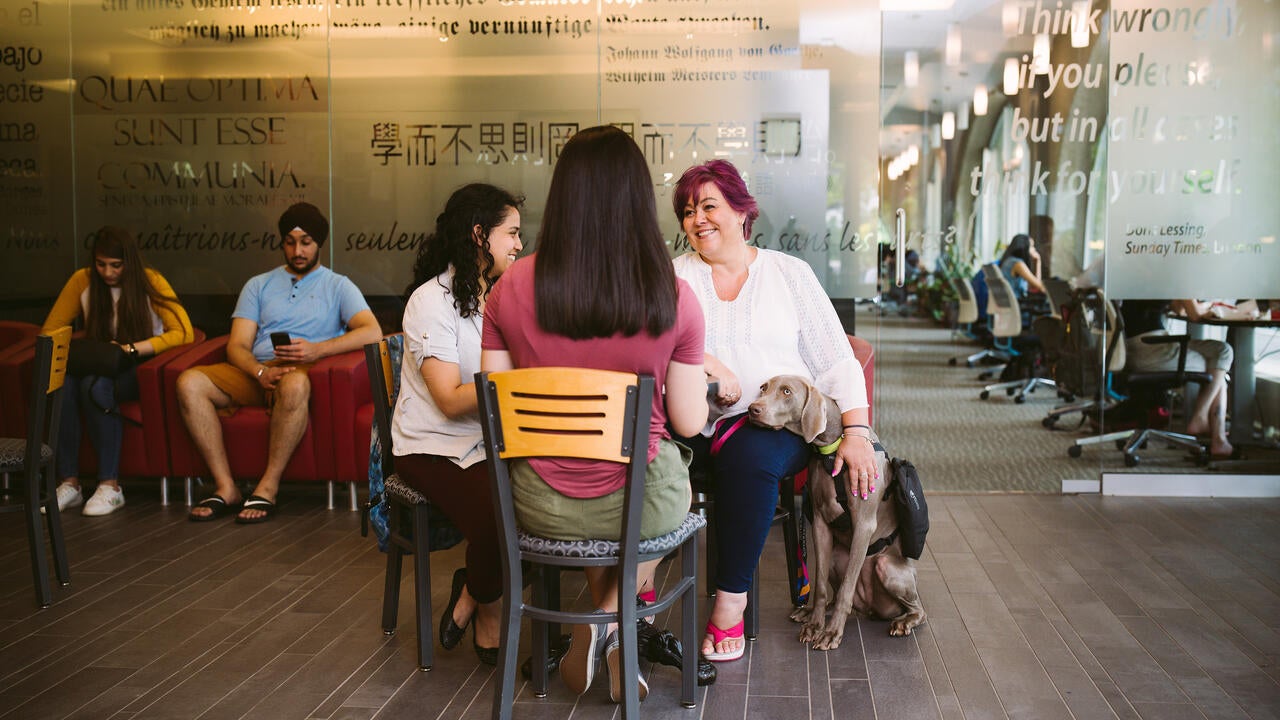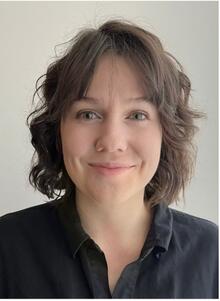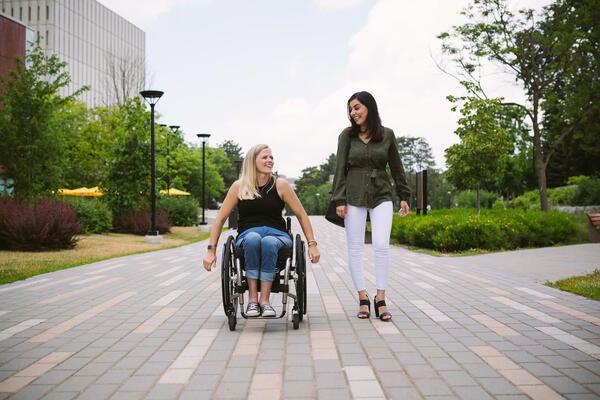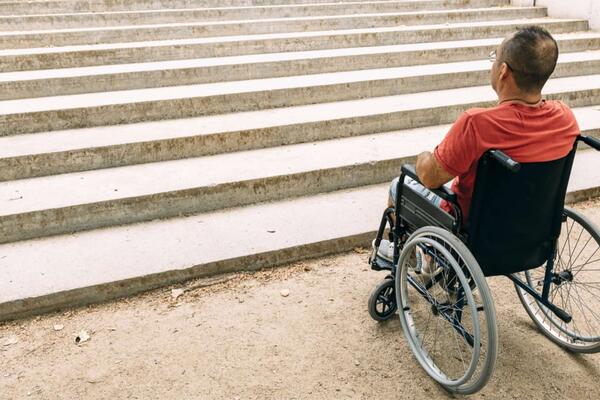
A focus on equity
Promoting accessibility for all creates the context for equity

Promoting accessibility for all creates the context for equity
By Dr. Christine Zaza Disability Inclusion Office Whether she’s conducting research on planning for equitable transportation or facilitating workshops at the Centre for Teaching Excellence, Emma McDougall is passionate about equity.
Whether she’s conducting research on planning for equitable transportation or facilitating workshops at the Centre for Teaching Excellence, Emma McDougall is passionate about equity.
A doctoral candidate in the School of Planning and a graduate educational developer with the Centre for Teaching Excellence, McDougall has first-hand experience with learning disabilities.
When she was in grade 11, McDougall’s diagnosis of a learning disability came as a surprise because she had always been successful by any typical standards in school. When she started university, the barriers to learning became more evident.
“If you had looked at my grades in first-year university you would not see someone who was progressing to a PhD,” McDougall says. “I didn’t perform particularly well in many of my classes. The lecture style was just not conducive to my learning.”
For McDougall, taking notes in class was not only distracting, but it was also disengaging as she could not keep up with the lecture while taking notes. Despite these difficulties, she persisted with notetaking because some of her professors encouraged her to “challenge her disability.” In third- and fourth-year seminar courses she found her passion for academia and excelled in that classroom format.
McDougall is now proficient using various strategies and tools that enable her to overcome many of the barriers in the university learning environment. However, many social barriers persist. McDougall is all too familiar with the stigma around disabilities, including well-intentioned but misguided advice, microaggressions related to academic accommodations and outright negative pronouncements about learning disabilities.
In her first year of undergraduate studies, one of her professors was comfortable announcing to the entire lecture hall that he did not believe in learning disabilities.
Regarding academic accommodations, McDougall emphasizes that accommodations are about equity.
“We need to actively shift our understanding of accommodations away from this notion that it’s affording individuals with disabilities something ’more’ than everyone else,” McDougall says. “Accommodation tools are designed to create equity in the classroom. They have never given students with disabilities unjust advantages.”
She goes on to explain that academic accommodations do not make learning easier, but rather they provide an equal opportunity to succeed.
Accessibility tip: Provide multiple accessible formats of instructional materials so that learners can choose what works for them. For example, when selecting videos, choose ones that include closed captions and a transcript.
As a graduate educational developer, McDougall advocates for universal design for learning (UDL) principles. She points to the value of simple actions that instructors can take, like setting a welcoming tone at the beginning of the term and talking openly about accessibility.
“I think the joy of universal design for learning is that we can start to think about different ways we can make our classrooms more accessible overall.”

Read more
Building awareness and inclusion in 2023 and beyond

Read more
Understanding disability as socially constructed leads to authentic inclusion

Read more
Inclusive and accessible education means prioritizing accommodation
The University of Waterloo acknowledges that much of our work takes place on the traditional territory of the Neutral, Anishinaabeg, and Haudenosaunee peoples. Our main campus is situated on the Haldimand Tract, the land granted to the Six Nations that includes six miles on each side of the Grand River. Our active work toward reconciliation takes place across our campuses through research, learning, teaching, and community building, and is co-ordinated within the Office of Indigenous Relations.